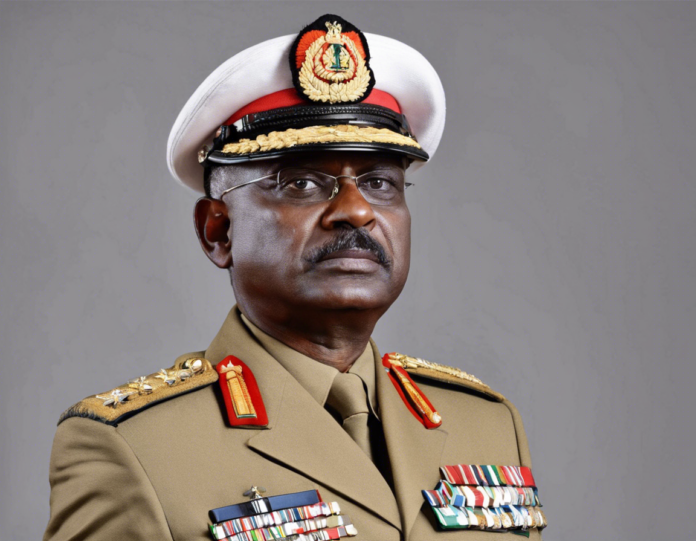Introduction
In today’s dynamic global security landscape, the need for effective military leadership is paramount. One key position that plays a crucial role in shaping military strategies and operations is that of the Chief of Defence Staff (CDS). This article aims to provide a comprehensive understanding of the role, responsibilities, and significance of the Chief of Defence Staff, exploring how this position differs from traditional military leadership roles and its impact on national security and defense.
What is the Chief of Defence Staff (CDS)?
The Chief of Defence Staff is a high-ranking military officer who serves as the principal military advisor to the government, responsible for coordinating and supervising the activities of the armed forces. The role of the CDS varies from country to country, but in general, they are tasked with promoting jointness, integration, and efficiency in military operations.
Evolution of the Chief of Defence Staff Position
The position of Chief of Defence Staff has evolved over time in response to changing security challenges and the need for more integrated military structures. Traditionally, military forces operated in separate silos – army, navy, and air force – leading to coordination challenges during joint operations. The creation of the CDS role aims to address these issues by providing a unified command structure.
Responsibilities of the Chief of Defence Staff
The responsibilities of the Chief of Defence Staff are wide-ranging and can vary based on the specific context and requirements of each country. However, some common responsibilities include:
-
Strategic Planning: The CDS is responsible for developing long-term strategic plans and military objectives in alignment with national security priorities.
-
Joint Operations: The CDS coordinates and oversees joint military operations, ensuring seamless collaboration between different branches of the armed forces.
-
Resource Management: The CDS plays a key role in resource allocation, budgeting, and procurement decisions to ensure optimal utilization of military resources.
-
Training and Development: The CDS is responsible for setting training standards, career development pathways, and professional military education programs for personnel across the armed forces.
-
Advisory Role: As the principal military advisor to the government, the CDS provides expert advice on defense and security matters, influencing policy decisions and strategic direction.
Key Differences from Traditional Military Leadership
The role of the Chief of Defence Staff differs significantly from traditional military leadership positions such as service chiefs or commanders of individual branches. While service chiefs focus on the specific requirements and objectives of their respective branches, the CDS takes a more holistic approach, looking at the broader strategic picture and aligning military capabilities to national security priorities.
Significance of the Chief of Defence Staff Position
The Chief of Defence Staff position plays a vital role in enhancing military effectiveness, interoperability, and efficiency. By promoting jointness and integration, the CDS helps break down silos within the military, enabling more coordinated and effective responses to complex security challenges. Additionally, the CDS serves as a unifying figure who can bridge gaps between different branches of the armed forces and foster a culture of cooperation and collaboration.
Challenges Faced by Chief of Defence Staff
Despite the importance of the Chief of Defence Staff role, there are several challenges that CDSs may encounter in their positions. Some common challenges include:
-
Inter-Service Rivalry: Overcoming historical rivalries and resistance to change within different branches of the armed forces can be a significant challenge for CDSs.
-
Resource Constraints: Balancing competing demands for military resources and navigating budgetary constraints require strategic decision-making and prioritization.
-
Political Dynamics: Navigating complex political environments and balancing military advice with political considerations can pose challenges for CDSs.
FAQs (Frequently Asked Questions)
1. What qualifications are required to become a Chief of Defence Staff?
Qualifications for the position of Chief of Defence Staff typically include extensive military experience, a strong track record of leadership and strategic planning, and a deep understanding of national security and defense issues.
-
How does the Chief of Defence Staff work with service chiefs and other military leaders?
The CDS collaborates closely with service chiefs and other military leaders to ensure alignment of military objectives, coordinate joint operations, and promote a unified approach to defense and security. -
What are the main differences between the Chief of Defence Staff and the Minister of Defence?
While the Minister of Defence is a civilian political appointee responsible for defense policy and oversight, the Chief of Defence Staff is a senior military officer focused on military operations, planning, and coordination. -
How does the Chief of Defence Staff contribute to national security strategy?
The CDS plays a key role in developing and implementing national security strategy by providing military advice, coordinating defense capabilities, and ensuring the readiness of the armed forces. -
What role does the Chief of Defence Staff play in international military cooperation?
The CDS often represents the military leadership of a country in international forums, collaborations, and joint exercises, fostering military cooperation and building alliances with partner nations.
In conclusion, the position of Chief of Defence Staff is a critical component of modern military structures, emphasizing jointness, integration, and efficiency in defense operations. The CDS serves as a key advisor to the government, a unifying force within the armed forces, and a strategic leader shaping military strategies to address contemporary security challenges. By understanding the role and responsibilities of the Chief of Defence Staff, we gain insight into the complex dynamics of military leadership and the impact it has on national security and defense capabilities.

